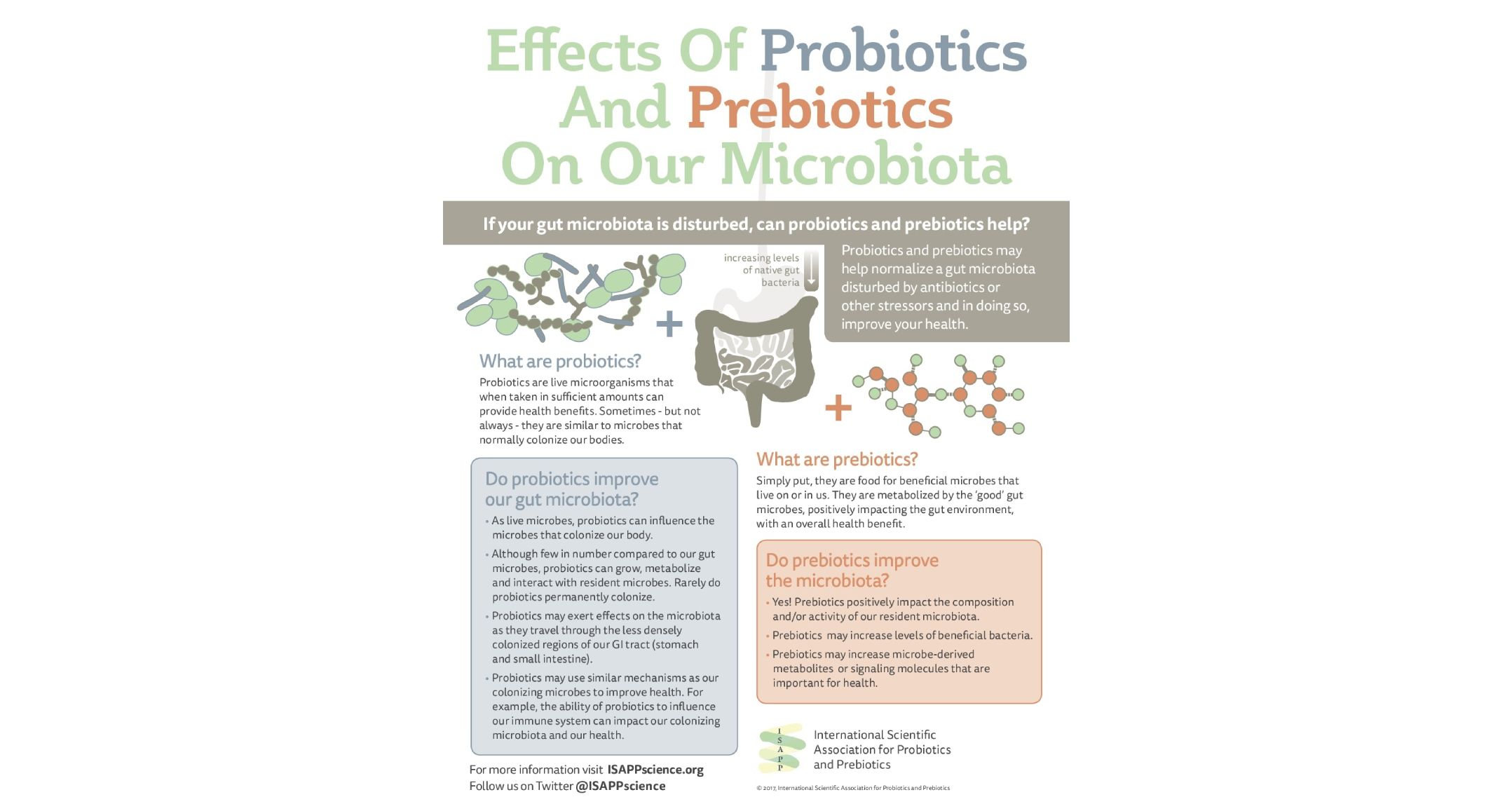Gut microbiota, often referred to as gut flora, consists of trillions of microorganisms residing in the gastrointestinal tract. These microorganisms play a crucial role in maintaining overall health and well-being. Recent scientific research has shed light on the importance of maintaining a healthy gut microbiota balance, highlighting the role of probiotics and prebiotics in supporting digestive and immune functions.
The Significance of Gut Microbiota
The human gut hosts a diverse community of bacteria, viruses, fungi, and other microorganisms collectively known as the gut microbiota. These microscopic organisms perform various essential functions:
Digestion: Gut bacteria aid in the digestion and absorption of nutrients, ensuring optimal nutrient utilization.
Immune System: The gut microbiota helps regulate the immune system, protecting against harmful pathogens.
Brain Health: Emerging research suggests a strong gut-brain connection, with the gut microbiota influencing mental health and cognitive functions.
Metabolism: Imbalances in gut microbiota have been linked to metabolic disorders, such as obesity and diabetes.
The Role of Probiotics
Probiotics are live bacteria and yeasts that provide health benefits when consumed in adequate amounts. These “good bacteria” colonize the gut and help maintain a proper microbial balance. By replenishing or enhancing the diversity of gut microbiota, probiotics support various aspects of health:
Digestive Health: Probiotics have shown their effectiveness in alleviating symptoms of irritable bowel syndrome (IBS), preventing diarrhea, and improving overall gut health.
Immune Function: They stimulate the immune system, promoting the production of antibacterial substances and regulating inflammation.
Antimicrobial Effect: Certain probiotics inhibit the growth of harmful bacteria, reducing the risk of infections throughout the gastrointestinal tract.
Mental Health: Probiotics may have a positive impact on anxiety, depression, and stress by modulating the gut-brain axis.
The Power of Prebiotics
Prebiotics are indigestible fibers that promote the growth and activity of beneficial bacteria in the gut. While probiotics introduce new strains of bacteria, prebiotics act as food for these “friendly bacteria” already present in the gut. The benefits of consuming prebiotics include:
Enhanced Gut Microbiota: Prebiotics help stimulate the growth of beneficial bacteria, optimizing the gut microbiota’s composition.
Improved Digestion: They increase fecal bulk, aiding in bowel regularity and preventing constipation.
Weight Management: Several studies suggest that prebiotics may assist in weight loss by promoting feelings of fullness and reducing calorie absorption.
Reduced Risk of Chronic Diseases: Prebiotics have demonstrated potential health benefits in various conditions, including cardiovascular diseases and inflammatory bowel diseases.
Maintaining Gut Microbiota Balance
While probiotics and prebiotics play significant roles in supporting gut health, it is crucial to adopt a holistic approach to maintain a healthy gut microbiota balance:
Diversify Your Diet: Consume a wide range of fiber-rich foods such as fruits, vegetables, whole grains, and legumes, which act as prebiotics and support the growth of beneficial bacteria.
Include Probiotic-Rich Foods: Incorporate fermented foods like yogurt, kefir, sauerkraut, and kimchi into your diet as they naturally contain live cultures.
Consider Probiotic Supplements: If you cannot obtain enough probiotics from food sources, supplements can be an alternative to ensure an adequate intake.
Minimize Antibiotic Use: Overuse of antibiotics can disrupt the gut microbial balance. Use antibiotics judiciously when necessary, and discuss alternatives with your healthcare provider.
Reduce Stress: Chronic stress negatively affects gut health. Incorporate stress management techniques such as exercise, meditation, and sufficient sleep into your routine.
Conclusion
Science has unraveled the influential role of gut microbiota in maintaining overall health. Probiotics and prebiotics serve as essential tools in supporting a healthy gut by improving digestion, boosting the immune system, and promoting general well-being. Adopting a balanced diet, incorporating probiotic-rich foods, and considering supplementation alongside a healthy lifestyle can help optimize gut microbiota, leading to better overall health and vitality.
